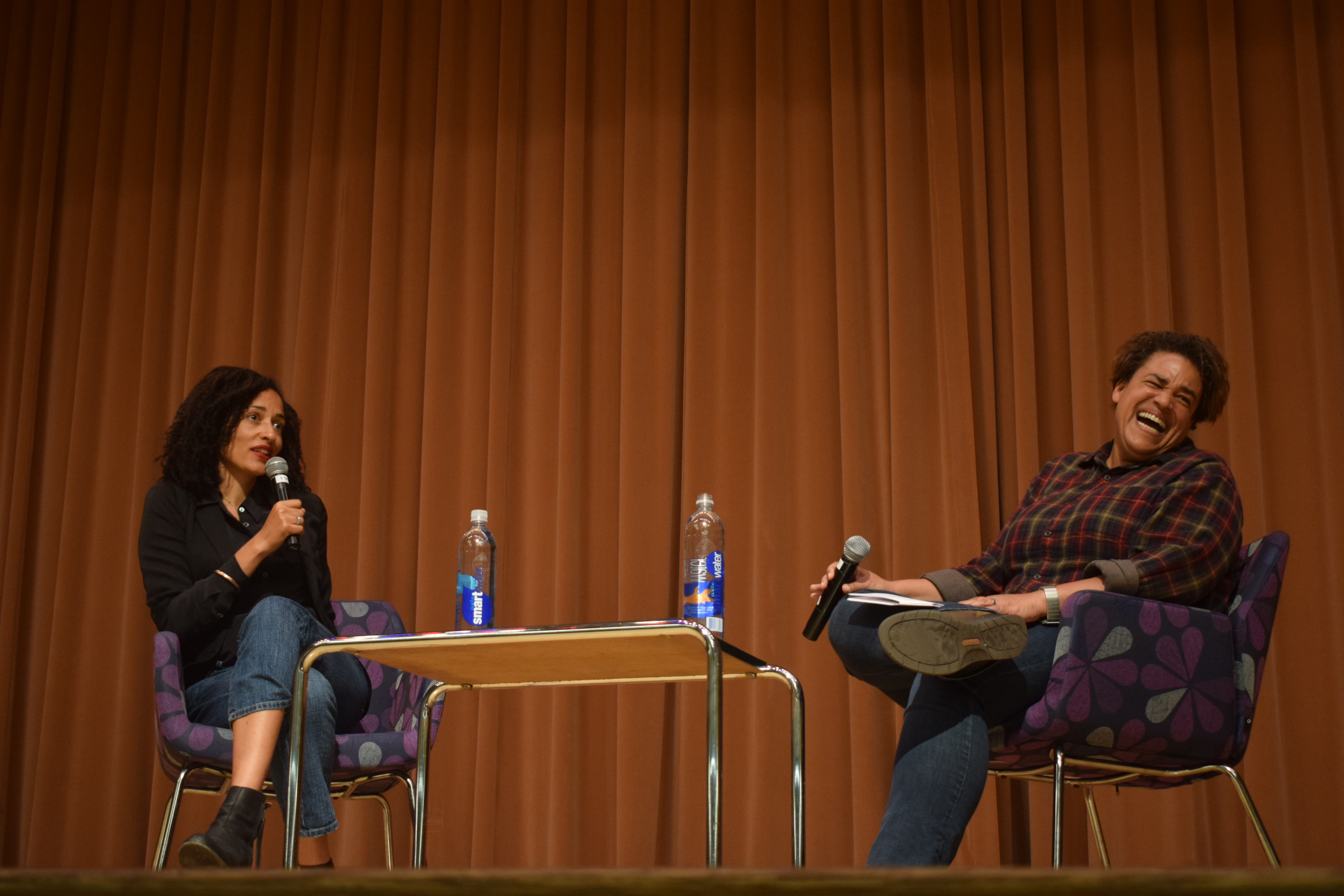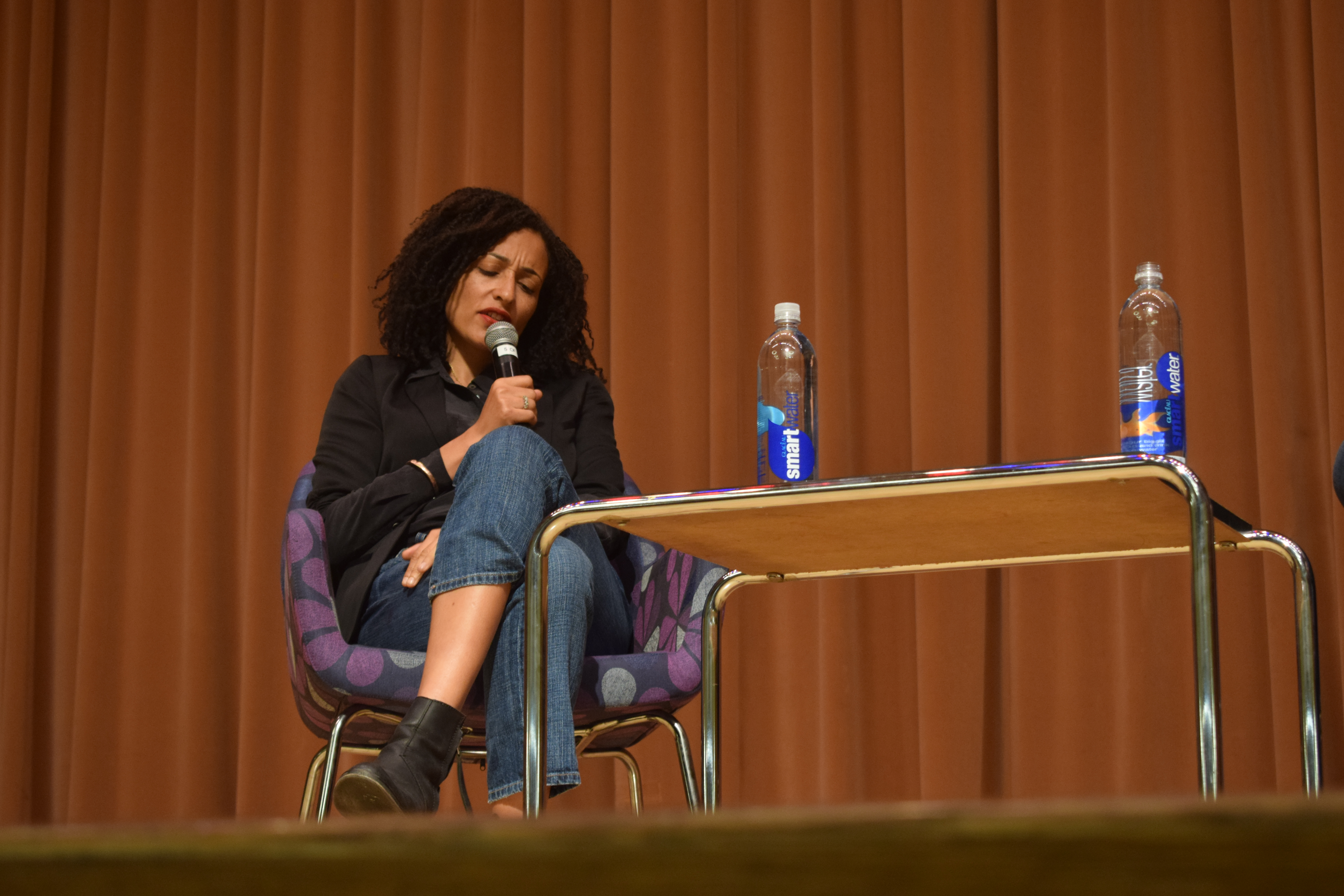Before attending “CTSS Presents: A Conversation with Zadie Smith,” students may not have known the difference between “vertical” and “horizontal” reading. They may not have considered the randomness of the country in which they were born, or the importance of imitation in writing. Leaving Ryan Auditorium on Thursday night, however, Northwestern students, faculty and staff could have been thinking about any of those topics discussed by the award-winning writer over the course of an hour and a half.
Smith’s speech was as multidimensional as her writing, but the importance of knowing one’s roots – or reading vertically – was the evening’s central theme.
African studies and comparative literature professor Michelle Wright moderated the conversation with Smith onstage, and set the tone for the evening with her first question by asking what spaces and amenities Smith needed to begin writing, to which Smith answered: “A babysitter.” The NYU professor then elaborated that she was able to exist within her ’97 version of Microsoft Word when writing, accompanied only by the application’s animated paperclip (otherwise known as Clippy).
Smith also discussed the topic of her children throughout the event, especially to highlight the recurring ideas of nationality and race. She spoke in particular about how her fair-skinned and fair-haired children do not resemble her, and the particular universality of that feeling. In explaining how the British author’s son was born in America “only because I was too lazy to get on a plane,” Smith explained how identifying with, and loving, a country is a choice.
“I will love the country I’m in if I find it lovable,” Smith said.
Throughout her writing process, Smith explained that she doesn’t sit down and write about what she feels. Rather, she uses the characters in her writing as objects through which to indirectly work out her feelings. She said she must consider her feelings on a subject when deciding what format a piece of writing will take. Essays are reserved for the ideas she has fully formed opinions about, allowing her to stand “halfway up on a soap box.” Novels, meanwhile, are for topics on which she is ambivalent and endlessly curious about.
Race has proved to be a source of that curiosity, and is as central to her writing as it was to this event. When an audience member expressed that she believed Smith had spent an inordinate amount of the event talking about her biracial identity, some members of the audience were therefore moved to look at one another in surprise.
However, according to student Sarah Peko-Spicer, a PhD candidate in the statistics department, Smith handled what could have been a tense moment beautifully. Peko-Spicer explained that the woman was proposing Smith remove her identity from her work, a feat that would be practically impossible, and something that she also experiences.
“How can I do research on public schools and not talk about the fact that they’re racist?” Peko-Spicer said, indicating how she had wrestled with the same question herself.
Weinberg junior Ben Zimmermann, the co-president of CTSS, said Smith’s discussion of race in writing and in the world, especially as it relates to history, was what he was most going to remember from the event.
“It epitomizes why [Smith] is such an accomplished writer because she’s able to push the envelope,” Zimmermann said. “The event was a resounding success."

